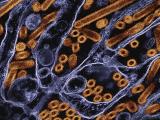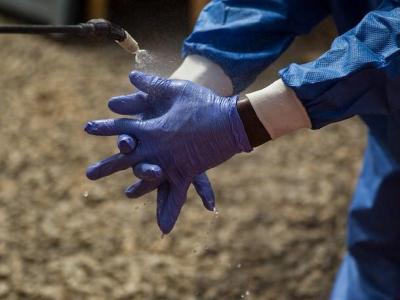Feb 13, 2009
Flu activity shows strong spike
Sixteen states reported widespread influenza activity last week, up from five the previous week, the Centers for Disease Control and Prevention (CDC) reported today. Flu activity was widespread in Colorado, Delaware, Georgia, Massachusetts, Nevada, New Hampshire, New Jersey, New York, North Carolina, Ohio, Pennsylvania, Rhode Island, South Carolina, Tennessee, Texas, and Virginia. Sixteen additional states reported regional activity. Nearly all (98.3%) influenza A/H1N1 samples that have been tested showed resistance to oseltamivir (Tamiflu).
[CDC influenza surveillance report for Feb 1-7]
Study suggests bias in flu vaccine studies
Studies on seasonal influenza vaccines that appear in prestigious medical journals are linked to industry funding, an association that doesn't appear to depend on study quality or size, according to a study published yesterday in the British Medical Journal (BMJ). The authors, basing their findings on 259 studies, found that agreement between a study's data and conclusion was more often seen in higher-quality studies, that government-funded studies were less likely to favor vaccines, and that citation levels were linked to industry funding.
[Feb 12 BMJ abstract]
Egypt charts path to H5N1 vaccine
Egypt is developing its own H5N1 avian influenza vaccine, Xinhua, China's state news agency, reported today. An expert from Egypt's National Research Center told the country's Middle East News Agency that tests have shown that the vaccine protects against the H5N1 virus. He added that a contract for a vaccine production line would be drawn up within the next 2 weeks.
[Feb 13 Xinhua story]
Cold virus discovery may foreshadow new antivirals
In a development that could help researchers develop antiviral drugs to fight cold viruses, a team of researchers yesterday reported complete genetic sequences for 99 known strains of the cold virus, according to a report yesterday in Science. The National Institutes of Healthfunded study also reveals how human rhinovirus type A and B species exchange information, enabling researchers to predict the pathogenicity of a cold virus.
[Feb 12 Science abstract]
[Feb 12 University of Wisconsin-Madison press release]
Salmonella cases, recall numbers rise
The number of people sickened in the nationwide peanut-related Salmonella outbreak rose to 636 cases in 44 states, the CDC reported yesterday. The latest known illness onset date was Jan 28. In other developments, Food and Drug Administration (FDA) officials sent a letter Feb 11 to its international colleagues warning them that though few countries received contaminated products from the Peanut Corporation of America, the investigation into the distribution chain could prompt more product recalls, which yesterday stood at 2,068.
[CDC investigation update]















